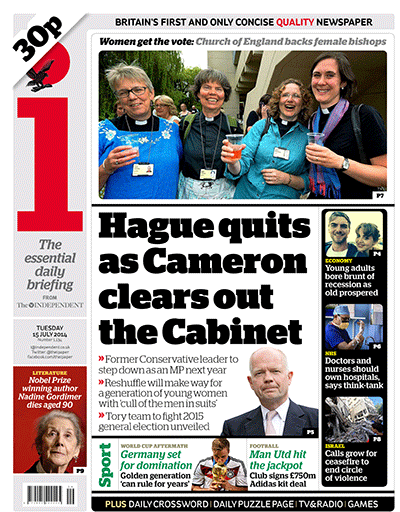i Editor's Letter: Can the NHS thrive with a personal profit motive?

Your support helps us to tell the story
From reproductive rights to climate change to Big Tech, The Independent is on the ground when the story is developing. Whether it's investigating the financials of Elon Musk's pro-Trump PAC or producing our latest documentary, 'The A Word', which shines a light on the American women fighting for reproductive rights, we know how important it is to parse out the facts from the messaging.
At such a critical moment in US history, we need reporters on the ground. Your donation allows us to keep sending journalists to speak to both sides of the story.
The Independent is trusted by Americans across the entire political spectrum. And unlike many other quality news outlets, we choose not to lock Americans out of our reporting and analysis with paywalls. We believe quality journalism should be available to everyone, paid for by those who can afford it.
Your support makes all the difference.
Should our NHS doctors and nurses be given a financial stake in the hospitals where they work?
That’s the proposal being considered by Health ministers in Westminster (but not Cardiff or Edinburgh) – “mutuals” that are part-owned and part-run by NHS staff. A John Lewis for the public sector, if you will. Just no one mention the P words (privatisation, proceeds, profit). Or the Co-op.
The NHS will fail to cope with ever-growing demand and constrained resources in the next few years without the extraordinary commitment and dedication of its 1.4 million staff – beyond even that shown by them at present.
So the theory is that “mutuals” would boost staff engagement in the NHS, allowing it to cope with cuts, yet improving standards by being more responsive to patients’ needs. Certainly many NHS staff would welcome less diktat from London.
While there is little political disagreement over doctors and nurses being given a greater say in our treatment, handing them a financial stake and allowing them to share any “proceeds” of that treatment is much more controversial - especially when the business partners are private healthcare firms.
One of the success stories cited is Hinchingbrooke Hospital in Cambridgeshire, a “basket case” losing £10m a year until taken over by private provider Circle, which manages it for the NHS. The hospital is now breaking even and scores highest in England for quality of patient care. The political argument is whether or not staff having a financial share – as some doctors do in Circle – is a critical factor in such turnarounds.
Nothing much is going to happen before the election in May, but the Conservatives have warmed to expanding these mutuals in the next Parliament.
To spell out the obvious, treating patients is quite different to helping retail customers. One of the key objections to NHS mutuals is simply that doctors should be worrying about patients’ needs and nothing else – particularly in hospitals, where so many critical (and expensive) areas of treatment compete for resources.
Patients’ trust in clinical staff is based on the knowledge that the NHS and its people aspire to universal healthcare – if not regardless of cost, at least not prioritising that above all else. It is not clear that this trust can survive the introduction of profit.
To take an example of mutuals already existing in the NHS: GPs remain hugely trusted, certainly relative to other professions (journalists among them). But where that public trust has wavered in recent years, GPs’ (self-determined) pay is cited as a factor.
Can the NHS thrive with a personal profit motive? Something tells me we’ll receive a few letters from you about this...
Join our commenting forum
Join thought-provoking conversations, follow other Independent readers and see their replies
Comments